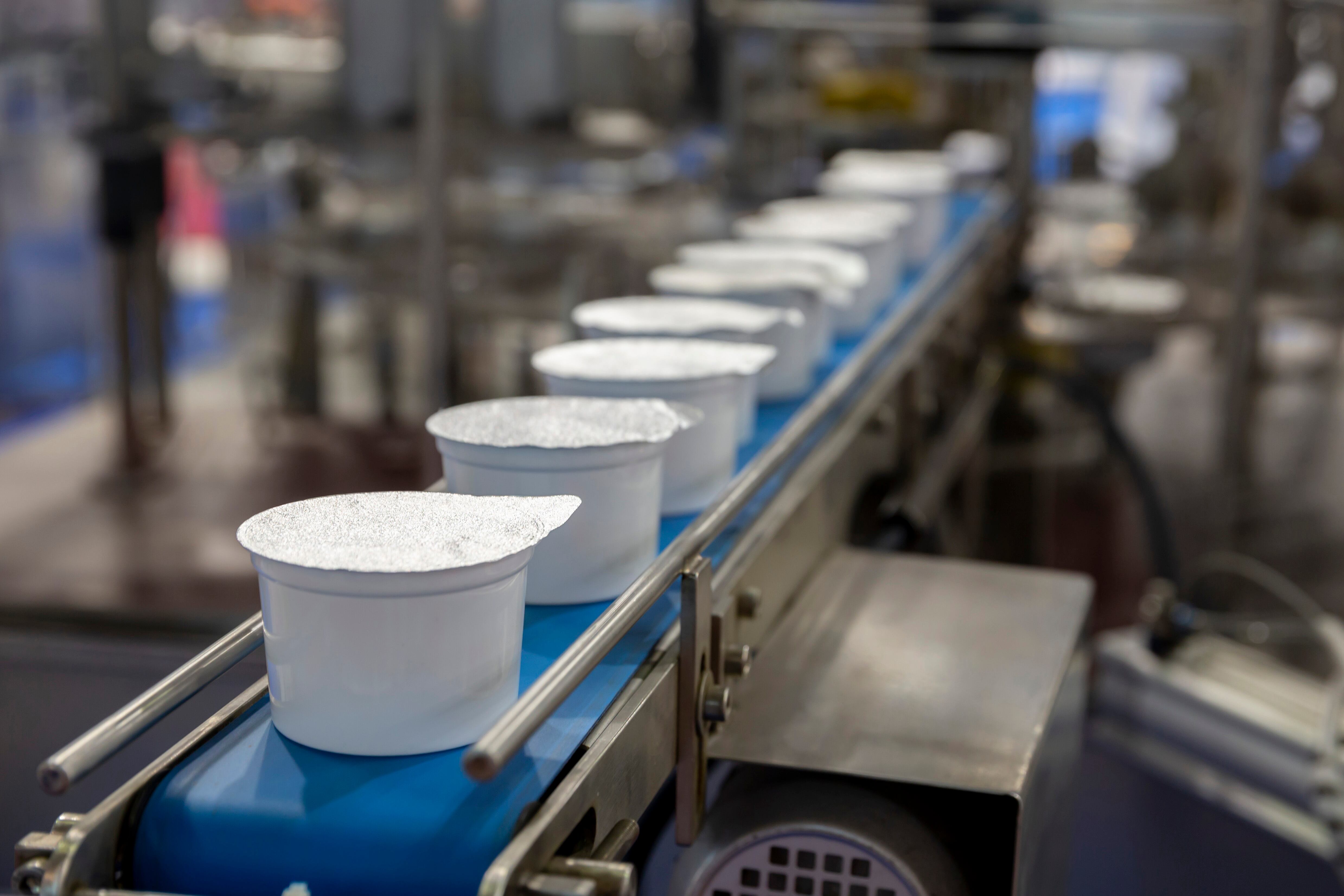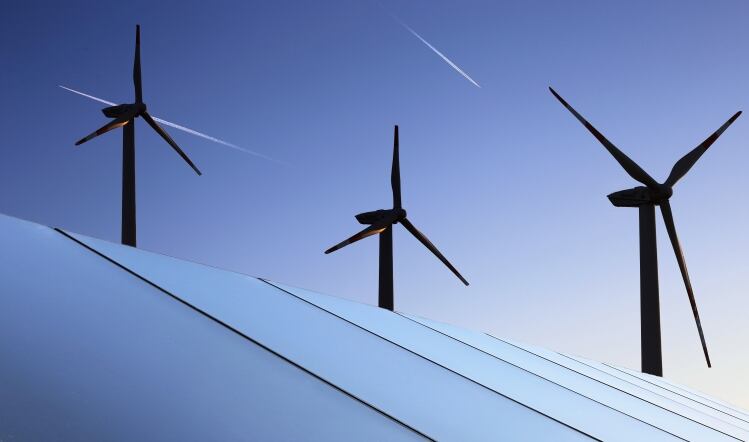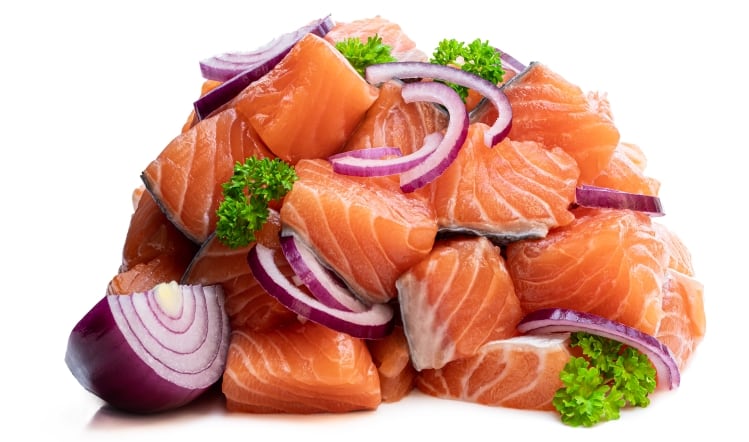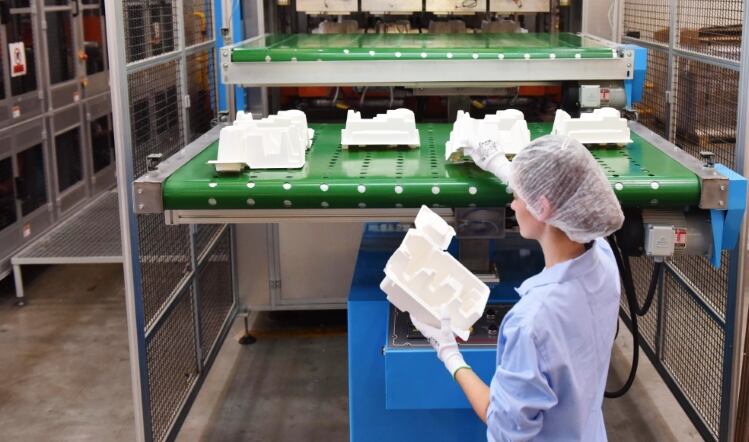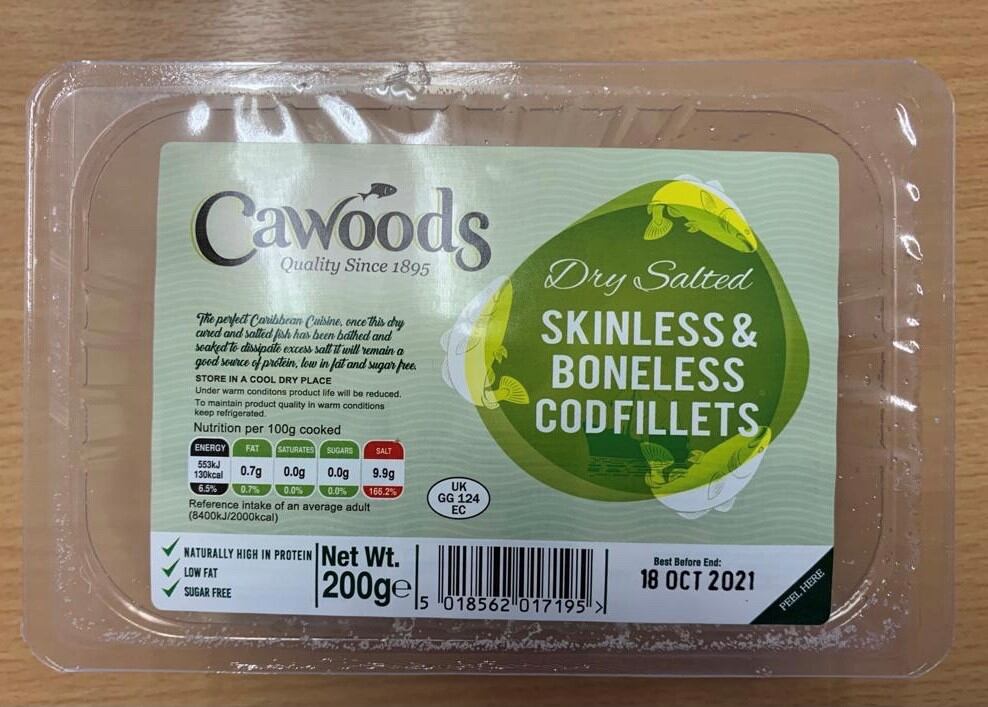
Grimsby-based dried salted fish processor Cawoods has boosted output from 21 packs a minute to 36 by upgrading its Ulma Packaging thermoformer to a TFS 300 hygienic design model.
“The TFS 300 thermoformer is ideally suited to Cawood’s packaging needs," said Ulma's regional sales manager Andy Hayward. "It is built to provide a hygienic film barrier over the product, which is extremely important to keep the salted fish protected.
"With the harsh salt environment, it was also important that any machine chosen could withstand such scenarios. The touch screen UPC control system also provides a clear and easy to use display, adding to the functionality of the model.
“A major plus of the TFS 300 is that it is so easy to clean and there are no edges that can retain product remnants either. The internal elements are also designed to support a high degree of resistance to water and dust with an IP rating of 67 and 69. These attributes make the equipment ideal for deep cleaning using high water pressure and meet the criteria and recommendations of the worldwide food safety standards.”
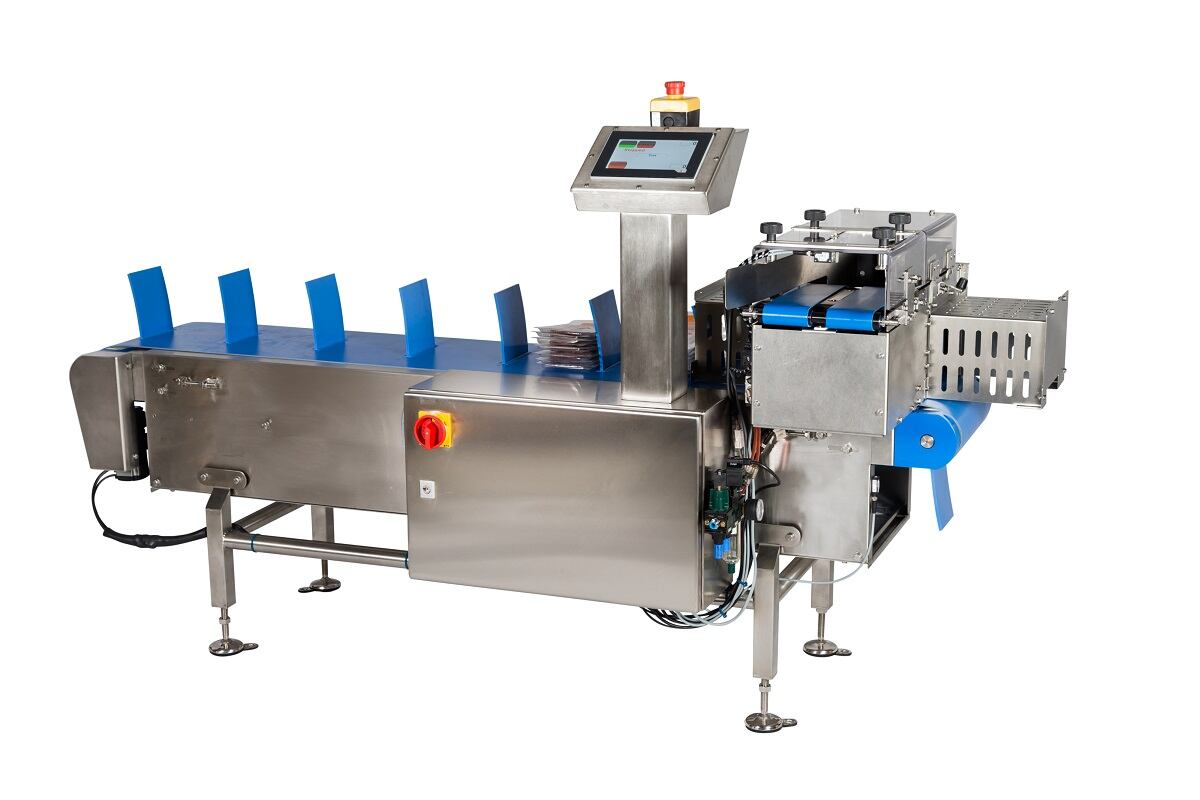
Jenton Ariana's new food pack stacker
Jenton Ariana, which is based in Whitchurch, Hampshire has launched a new automatic food pack stacker for end-of-line high speed collation where minimal operator intervention and reliability are critical.
Capable of operating at speeds up to 150 packs per minute, Jenton’s new collating system features multiple stacking finger modules to drop packs into the stack incrementally in a controlled manner. Stepper-driven infeed and outfeed belts control entry and exit of the trays.
The colour touchscreen makes the stainless steel machine easy to set up for a large variety of pack sizes, materials, including plastic, card and foil, and stack heights up to 150mm high. All settings can be stored against a name. The packs are fully contained to ensure neat, stable stacks.
Aluminium drinks can recycling rates rise
Data published earlier this month by the Environment Agency (EA) indicated aluminium beverage can recycling hit its highest ever rate in 2020 – 82%. That represents a year-on-year increase of 6% in a market that saw significant growth.
The pandemic significantly boosted at-home consumption, so more aluminium packaging was collected and recycled than any year on record. PRNs were issued for a total of 151,515 tonnes, an increase of 31% compared to 2019 figures (115,808 tonnes).
A total of 106,047 tonnes of separately collected aluminium packaging was recorded in 2020 (compared to 89,543 in 2019). Volume recovered from incinerator bottom ash (IBA) increased from 26,265 (2019) to 45,468 (2020). An estimated 86% of the collected aluminium packaging was recycled within Europe.
Compared to other packaging materials, by far the greatest rise in recycling rates was logged for aluminium. Exceeding 2020 business targets by 15% and realising a surplus of 36,845 tonnes, last year delivered the highest ever aluminium packaging recycling rate.
Rick Hindley, executive director at aluminium packaging recycling organisation Alupro, said a sharp increase in the volume of separately-collected aluminium packaging recovered at the kerbside reflected changing consumer behaviours and increasing awareness of the benefits of recycling. He attributed the rise in the volume of aluminium recovered from IBA to several new companies gaining approval to issue Packaging Recovery Notes and the increased number of new UK energy recovery facilities.
“Looking forward to the next 12 months, which sees the annual target for aluminium packaging recycling increase to 66% and a carry-in of 8,326 tonnes, it’s too early to predict how volumes will change," said Hindley. "Figures for the first three months of 2021 suggest that aluminium packaging collection rates have continued to grow."
Unilever pursues rPET with Hellmann's
Hellmann’s, one of Unilever’s largest food brands in the UK, has begun moving its full ‘squeezy’ range in the UK to bottles made with 100% post-consumer recycled polyethylene terephthalate (rPET) plastic. The move is designed to save approximately 1,480 tonnes of virgin plastic every year once the full range has switched.
The new packaging has been made using the highest quality food-grade standard recycled plastic and will feature a ‘New 100% Recycled Bottle’ logo on the front of pack. Nearly half of the range (40%) has moved to the recycled plastic material already and reached shelves this month, with plans for the full range to have switched by the end of 2022.
Increasing its use of recycled plastic in packaging is a key is part of Unilever’s wider global packaging commitments which include halving their use of virgin plastic as well as ensuring all their packaging is reusable, recyclable or compostable by 2025.
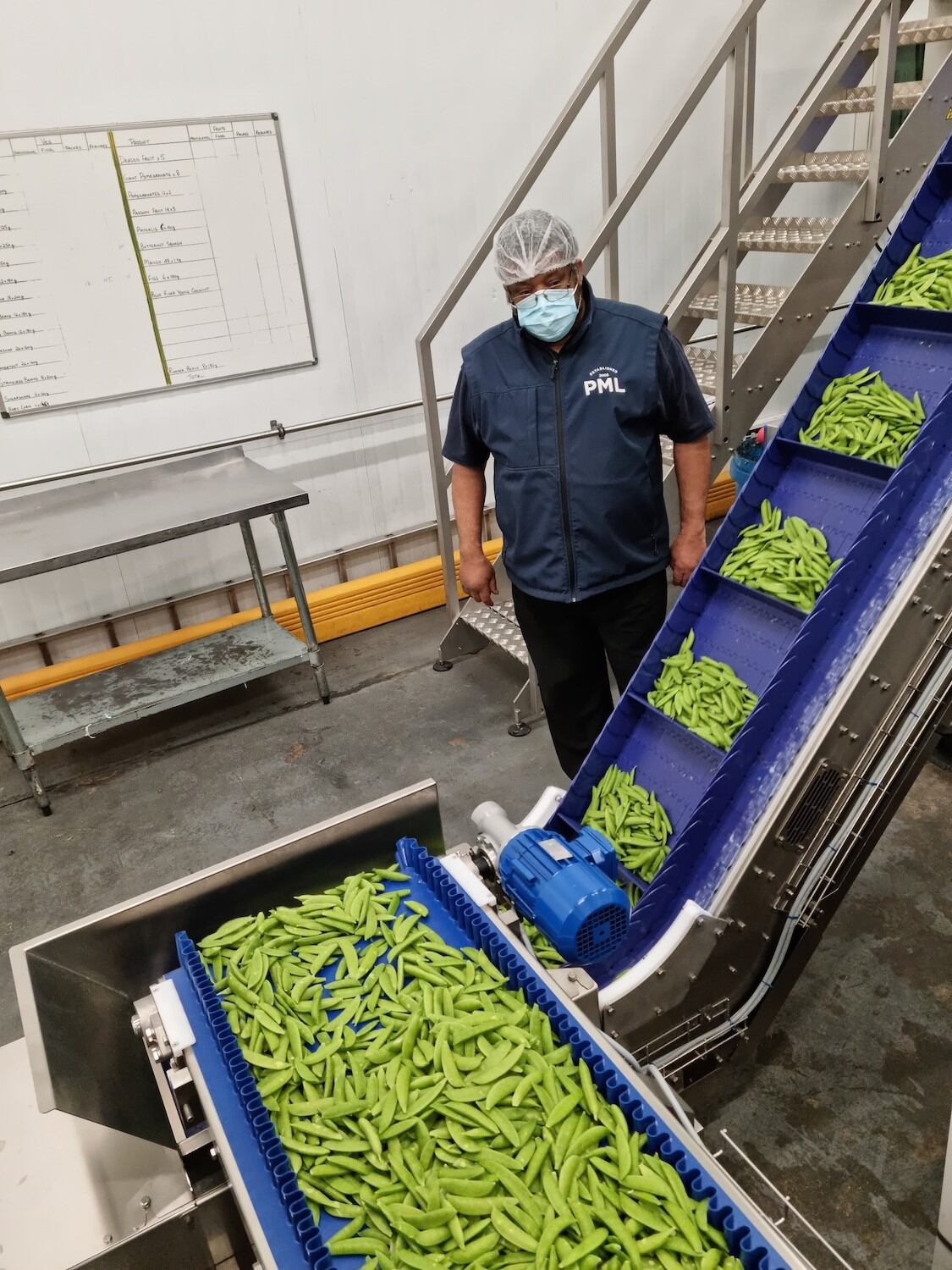
Perishable Movements doubles fresh produce packaging rates
Global perishable cargo specialist Perishable Movements Limited (PML) has more than doubled its packaging rate for sugar snaps, mange tout and physalis from 40-45 packs a minute to 90-100 with the purchase of new machinery.
PML said the £250,000 Vegatronic 6000 multi-head packaging machine at its Heathrow base had 16 rather than 14 heads. The enhanced speed of operation required an additional member of staff to ensure a seamless production line, while the new equipment was more versatile easier to use and improved access for cleaning. In the long term, PML anticipated using the multi-head packaging machine for other products.
Commenting on the company’s latest investment, PML sales director Nick Finbow said: “PML has always been at the forefront of ploughing investment back into the business and adapting all operations to offer its customers a service which reflects optimum maximum efficiency.
"This latest purchase will enable us to pack more items, at double the speed, meaning we are well-placed to respond to delays in the supply chain - for example, if a flight is delayed - and counteract any potential disruption to the original onward transport schedule.”
GEA takes thermoforming to next level
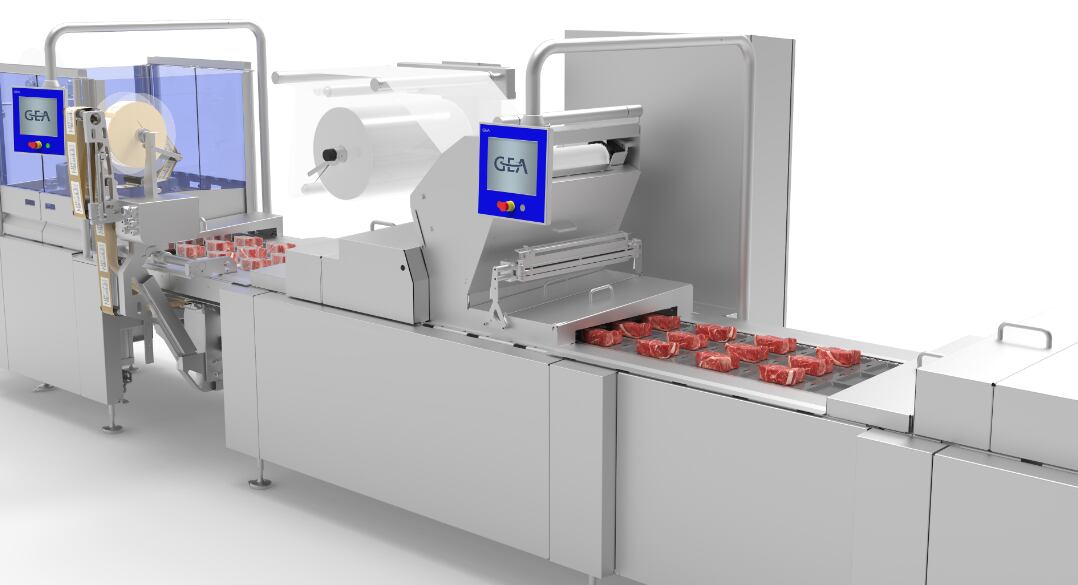
GEA has launched the latest version of its SKIN thermoforming packaging technology: PowerPak SKIN.50.
The machine can boost packing capacity for sliced products such as meat cuts, sausages, fish, hard cheese and premium seafood up to 100mm high that protrude up to 50mm above the level of the packing tray. It can also perform vacuum and MAP packaging on the same machine.
GEA achieved the high capacity through innovative engineering, giving an index length of up to 600mm, up to eight tracks and four rows of product.
Quality enhancements had been achieved by using a new top film guiding and pre-heating station. The modifications avoided tapering of the film and made it easier to form, preventing wrinkles and improving the appearance of the package, and ensured correct alignment during sealing.
Packaging raw material costs (all data courtesy of Mintec)
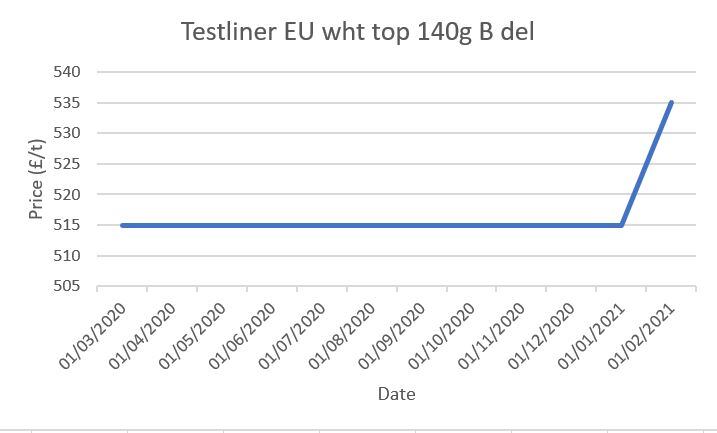
Testliner (UK, white, top grade, delivered) costs rose by 4% to £535/t in February compared to the previous month, driven by robust demand, especially from the e-commerce sector amid tightening supply due to lockdown measures. In addition, high prices for recovered paper, despite a slight improvement in the availability of recycled corrugated case material during February, further supported testliner prices.
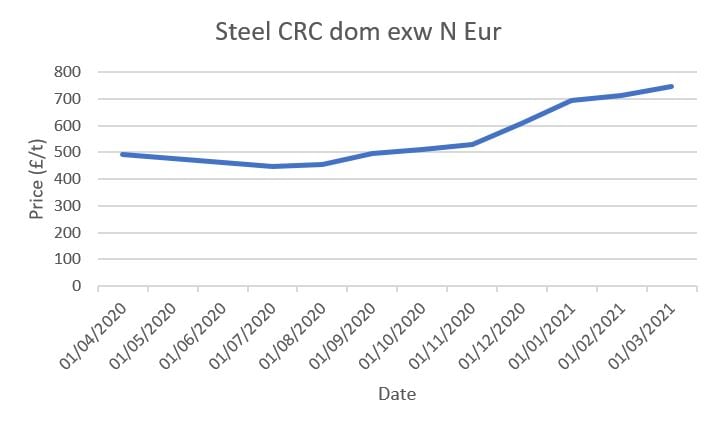
Steel (EU) prices have continued strengthening in the first quarter of 2021, mainly driven by limited supply amid strong global demand, especially from China, and higher freight and feedstock iron ore costs. As a result, EU cold-rolled coil prices reached the highest level recorded by Mintec, at £747/t in the first two weeks of March.

